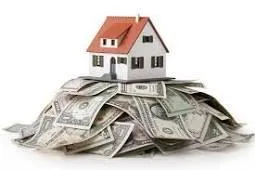
Fixed vs Variable Interest Rates
Understanding Variable Rate Mortgages: Pros and Cons
As you navigate the complex world of home financing, understanding the different mortgage options available is crucial. One such option is the variable rate mortgage (VRM), which can be both advantageous and risky, depending on market conditions and your financial stability. Here’s a closer look at the pros and cons of choosing a variable rate mortgage today.
Pros of Variable Rate Mortgages
Lower Initial Rates: Variable rate mortgages often start with lower interest rates compared to fixed-rate mortgages. This can make them particularly attractive for buyers looking to save money in the short term.
Potential for Rate Decreases: If interest rates decrease, those with variable rate mortgages can benefit significantly. Lower interest rates mean lower monthly payments, which can free up funds for other investments or expenses.
Flexibility: VRMs often come with fewer restrictions and prepayment penalties compared to fixed-rate mortgages. This flexibility allows borrowers to make extra payments or pay off their mortgage early without incurring hefty fees.
Cap Features: Some variable rate mortgages come with caps that limit the maximum rate increase. This can provide a safety net for borrowers, ensuring that their interest rates and monthly payments don't skyrocket unexpectedly.
Cons of Variable Rate Mortgages
Interest Rate Risk: The biggest downside to variable rate mortgages is the uncertainty associated with fluctuating interest rates. If rates rise, so do your monthly payments, which can strain your budget, especially if rates increase significantly.
Budgeting Challenges: Because VRMs are unpredictable, they can make long-term financial planning more challenging. Homeowners may find it difficult to predict their monthly expenses, which can complicate budgeting and saving strategies.
Complex Product Features: Variable rate mortgages can be complex financial products with various features like caps, collars, and convertibility options. Understanding these features and how they impact your payments requires careful research and possibly financial advice.
Economic Sensitivity: VRMs are highly sensitive to changes in the broader economy, particularly to shifts in monetary policy and economic conditions. During periods of economic volatility, VRMs can lead to higher financial stress for homeowners.
Making the Right Choice
Deciding whether a variable rate mortgage is right for you depends on several factors, including your financial stability, risk tolerance, and long-term financial goals. It’s essential to consider current and projected economic conditions, your ability to handle possible rate increases, and the terms of the specific VRM product you are considering.
In today’s context, with interest rates experiencing fluctuations and economic forecasts showing uncertainty, careful consideration and possibly seeking advice from financial experts are more important than ever. Understanding the full implications of a VRM can help you make a more informed decision that aligns with your homeownership and financial objectives.
